
by Sandra Gulland | Oct 22, 2015 | Adventures of a Writing Life, Audible Editions, Recommended Books, Movies, Podcasts, etc. |
Hilary Clinton’s HARD CHOICES was a game-changer for me. It’s going on my “Best of the Year” list.
Many dismiss this book as campaign positioning. I see it as far more. I think it’s a valuable historical document, a very detailed account of what one term as US Secretary of State entails. I also think it’s Clinton’s “for the record” legacy.
I came away extremely impressed with what she accomplished—or tried to accomplish—and impressed, as well, with the role of the US in attempting to keep world peace. The world is a tinder box of explosives; the job of the US Secretary of State is critical!
Hilary’s “Smart Power” approach—diplomacy being the most important part of the equation—strikes me as sound. She makes very strong arguments for environmental protection and equality for women worldwide being key to both US security and economic development. She is a tireless advocate of Democracy. She’s a little more of a Hawk than I like, but that’s easy for someone not in the thick of it to think. Her humanitarian values are front and centre.
I came away from reading Hard Choices wanting to campaign for Hilary for President. I’m no longer a U.S. Citizen, but the U.S., like it or not, has an enormous effect on the well-being of the world—my world—and whoever is running that country will have a profound effect on my life and the lives of those I hold dear.
I highly recommend this book as an overview of the extremely serious problems in the world today. (It would be a worthy task for any book club to take on. The discussions would be heated, without a doubt!)
I’m both heartened and alarmed after reading this book: heartened because of the worthy work being done, and alarmed at how how fragile things are. A party less inclined to effective diplomacy and one that does not recognize key dangers (one that denies global warming, for example!) could spell disaster for our world—my world.
I rarely speak out on political issues. Some of my wonderful readers and very good friends are not in agreement with my views, I know, and would be inclined to dismiss anything written by Hilary Clinton. I urge you to read her book, and then let’s discuss.
Note: I listened to the Audible edition—all 27 hours of it!— and I highly recommend it, with a few cautions. The lion’s share of this very long and detailed book is narrated by Hilary, and she does a fantastic job. I didn’t care for the other narrator, Kathleen Chalfant; she puts too much emotion into her voice, which, for me, is distracting. Fortunately, she only narrates the short opening and closing sections, which are not the meat of the book.
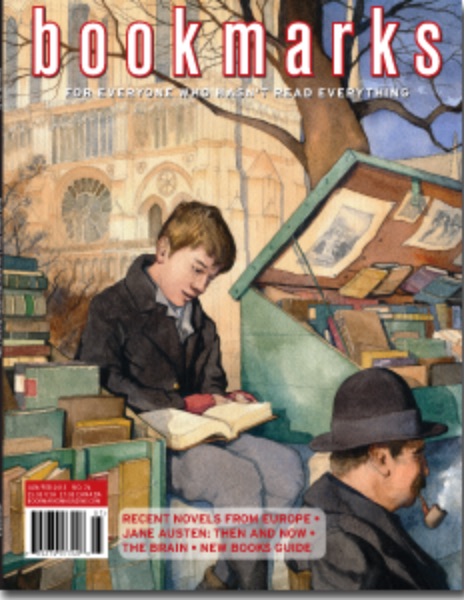
by Sandra Gulland | Sep 24, 2015 | Adventures of a Writing Life, Recommended Books, Movies, Podcasts, etc., Resources, Resources for Readers |
I devour Bookmarks magazine whenever it comes out. The magazine covers recent publications in a range of genres, and gives an excellent summary of the major reviews.
I read it cover-to-cover pencil in hand, marking the titles that interest me. Then I go to my computer and download a free Kindle sample of each book to my ebook reader.
This is rather like browsing books in a bookstore. I check each title out, and buy the books that hook me—print editions for the half of the year we are in Canada, (mostly) digital editions for the six months we live in Mexico.
This inevitably leads to book overload. In little over one month, we will be packing up, closing up, locking up, and flying from Canada to our second home in Mexico. I will need to decide which books go with me, and which ones stay. This is not easy for a bookaholic, much less a writer of historical fiction.
As it is, I have many, many unread books: books I will never read, books I am reading, books I intend to read soon. I certainly do not need more. I remind myself of this as I’m downloading samples of:
- Among the Ten Thousand Things by Julia Pierpont;
- Re Jane by Patricia Park;
- The Savage Detectives by Roberto Bolaño;
- The Book of Aron by Jim Shepard;
- The Diver’s Clothes Lie Empty by Vendetta Vida;
- The Rocks by Peter Nichols;
- Simon vs. The Homo Sapiens Agenda by Becky Albertalli;
- The Millionaire and the Bard by Andrea Mays;
- The Sea by John Banville.
You see what I mean? Where can I sign up for Bookaholics Anonymous?

by Sandra Gulland | Jul 5, 2015 | Adventures of a Writing Life, On Research, Podcasts, Recommended Books, Movies, Podcasts, etc., Resources, Resources for Readers, Resources for Writers, The Writing Process |
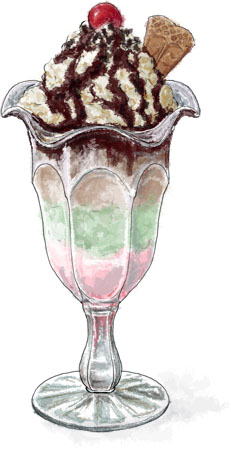
Links for writers …
• How Kazuo Ishiguro wrote the award-winning Remains of the Day in only four weeks. Depressing, isn’t it?
Links for flâneurs through history …
• The French Revolution Network. It’s always a thrill to discover discussions on topics of interest.
• These 16th century portraits of women painted by Caterina van Hemeseen are arresting.
• For delicious details on daily life in the 17th century, see this website.
Links for Napoleonistas …
• I’m reading Patrice Gueniffey’s Bonaparte 1769-1802: excellent.
Links for everyone …

I’m late to the party, but I’m now a big fan of Mark Maron’s WTF podcast. His interview with Barack Obama is an outstanding introduction. (It’s wonderful that Obama would venture into such edgy territory.)
Have a great week!
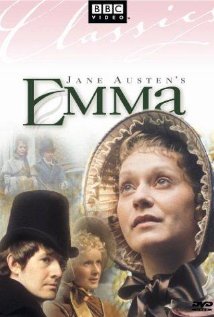
by Sandra Gulland | Jan 16, 2015 | Adventures of a Writing Life, Recommended Books, Movies, Podcasts, etc., Resources for Readers |
“Selkie,” a reader of this blog, left a comment on my “best of 2014” blog post about my love of the 2005 film Pride and Prejudice (staring Kiera Knightly). She said she watches an Austen movie once a week. (I can understand!) Very kindly, she gave me a list to share here. As comprehensive as it is, she notes that is only of the films she owns.
Emma (1972), starring Doran Godwin and John Carson.
Emma (1996), starring Gwyneth Paltrow and Jeremy Northam.
Emma (1996), starring Kate Beckinsale and Mark Strong.
Mansfield Park (1983), starring Sylvestra Le Touzel and Nicholas Farrell.
Northanger Abby (1986), starring Katherine Svhlesinger and Peter Firth.
Persuasion (1971), starring Firbank and Bryan Marshall.
Pride and Prejudice (1940), starring Greer Garson and Laurence Olivier.
Pride and Prejudice (1980), starring Elizabeth Garvie and David Rintoul.
Pride and Prejudice (2003—an extremely modern version), starring Kim Heskin and Orlando Seale.
Pride and Prejudice (2005), starring Kiera Knightly and Matthew Macfadyen.
Sense and Sensibility (1981), starring Irene Richard and Tracey Childs.
Sense and Sensibility (2004), starring Emma Thompson, Kate Winslet, and Hugh Grant.
Related movies:
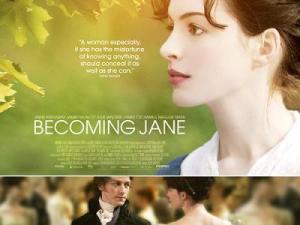
Becoming Jane (2007), starring Anne Hathaway and James McAvoy.
Lost in Austen (2008), starring Jemima Rooper and Elliot Cowan.
About this last one, Selkie notes, “I absolutely love this movie!” That’s high praise indeed; I’m going to try to find it!
Thank you so much, Selkie!
I discovered that I had a 6-book credit on Audible.com that had to be used before the end of this month. Needless-to-say, I went on a book-buying spree. Here’s what I bought:
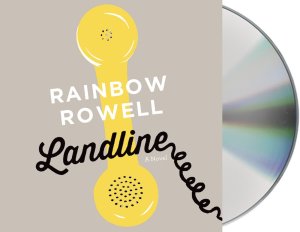
Landline by Rainbow Rowell, because I enjoy YA and I especially enjoy Rowell’s work.
My Life in Middlemarch by Rebecca Mead. On many “best of 2014” lists.
Everything I Never Told You by Celeste Ng. Ditto.
Dept. of Speculation, by Jenny Offill. This unusual novel was on the very interesting New York Times 10 Best Books of 2014 list and I really liked what the NY Times team had to say about it on their Podcast. (It’s a poetic novel, and I’m not sure how well it will work on audible, however.)
All the Light We Cannot See, by Anthony Doerr. This one is on virtually every “best of” list.
Heartburn by Nora Ephron. Because laughing is wonderful, but most of all, because it is narrated by the amazing Meryl Streep.
I listen to “books on tape” (not that they are on tape anymore) when I’m exercising, so this collection should get me in excellent form.

by Sandra Gulland | Dec 19, 2014 | Baroque Explorations, Recommended Books, Movies, Podcasts, etc., The Sun Court Duet |
It’s always a pleasure to see a historical film set in the Court of the Sun King. A Little Chaos, staring Kate Winslet, promises to be sumptuous. I always take issue with the portrayals because I have my own vision of these characters. None the less, I’m eager to watch it, especially to see how Versailles is portrayed in its early days.
The story of A Little Chaos
Madame Sabine De Barra (Kate Winslet) is an unlikely candidate for landscape architect of the still-to-be-completed Palace of Versailles. She has little time for the classical, ordered designs of the man who hires her, the famous architect Le Nôtre (Matthias Schoenaerts). However, as she works on her creation, she finds herself drawn to the enigmatic Le Nôtre and forced to negotiate the perilous rivalries and intricate etiquette of the court of King Louis XIV (Alan Rickman). But Sabine is made of strong stuff; her honesty and compassion help her to overcome both the challenges of her newfound popularity, and an unspeakable tragedy from her past, to win the favour of the Sun King and the heart of Le Nôtre.
Oh, how this makes me long to see such a movie about Claudette or Petite!
Since I wrote this post, and since A Little Chaos has come out there have been mixed reviews. One objection is that the real story of Le Nôtre is quite interesting enough without tarting it up with a love interest. He was the most steady and loyal of men.
From the Guardian: A Little Chaos: leads historical accuracy down the garden path
Only 6.5 on IMDb: too bad!
From the BBC: Costume drama A Little Chaos fails to blossom
Nonetheless, I can’t wait to see A Little Chaos. Have you seen it? What did you think?

by Sandra Gulland | Oct 10, 2013 | Adventures of a Writing Life, Recommended Books, Movies, Podcasts, etc., The Game of Hope, The Writing Process, Work in Process (WIP) |
When I was asked by Penguin US if I would be interested in reading Salley Vickers’ new novel, The Cleaner of Chartres, of course I said yes. I’d read Miss Garnet’s Angel by her, and enjoyed it very much.
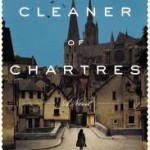 The Cleaner of Chartres is more unusual, more challenging in structure, but has something of the same charmingly old-fashioned feel to it. (I kept thinking Balzac.) I both loved this novel and struggled with it, and in the end I adored it.
The Cleaner of Chartres is more unusual, more challenging in structure, but has something of the same charmingly old-fashioned feel to it. (I kept thinking Balzac.) I both loved this novel and struggled with it, and in the end I adored it.
The novel unfolds in the present (in Chartres, France), and in various other French cities in the past (Evreux, Rouen, Le Mans), revealing by stages the life of one woman, Agnes, the cleaner of the title.
Agnes is an able if mysterious young woman with a talent for sorting and cleaning, a vocation that pulls her into the messy lives of a number of people—and, in the process, complicates her own.
There are mysteries throughout: I won’t spoil it for you by revealing what these are, but suffice it to say that in coming to Chartres, Agnes is trying to escape a troubling past.
This is a gentle novel, peopled with charming eccentrics. Vickers is a polished writer with a charming sense of humour: I love the texture of her prose. My one reservation (and the cause of the struggle mentioned above) is that since there are a number of different characters in each city, I had to keep notes on who was where. A cast of characters would have helped, and a map would have been a pleasant addition as well.
I was especially delighted with the Afterword, where Vickers explains what happened to some of her fictional characters. As if—and yes, I do believe it so—they all went on living. A lovely touch.
“Realism with a subtle fairytale quality,” said the Publishers Weekly reviewer, and that captures it perfectly. Vickers is a wonderful novelist.
Life update: I’m preparing for Canadian Thanksgiving—a big event here!—and for heading to our winter home in San Miguel de Allende, Mexico, not long after. (See my last blog post on what that entails.)
The last draft of the Hortense Young Adult is tucked away until early November. In the meantime, in the early creative hours, I’m giving some thought to the premise, tag and log lines, using the guidelines from a worthwhile 3-session on-line course on “Rapid Story Development,” using, among other things, Enneagrams, a method for analyzing character.*
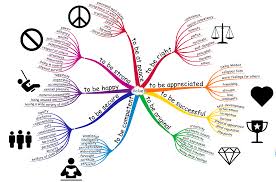
Enneagrams are complex, but intriguing: I do love learning systems. Simply framing a premise with the help of the class guidelines has helped me see how the story needs to be changed.
Another thing I’m studying right now is the Lenormand method of foretelling the future—a type of Tarot which is surprisingly popular.
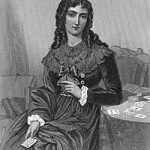 Madame Lenormand was a contemporary of Josephine Bonaparte; in fact, she lived close to Josephine’s delightfully eccentric aunt Fanny. Lenormand was famous for her accurate predictions; she exploited and enhanced her fame by becoming a prodigious writer and publisher on matters occult, as well of a faux memoir of Josephine (a “memoir” that has always intrigued me).
Madame Lenormand was a contemporary of Josephine Bonaparte; in fact, she lived close to Josephine’s delightfully eccentric aunt Fanny. Lenormand was famous for her accurate predictions; she exploited and enhanced her fame by becoming a prodigious writer and publisher on matters occult, as well of a faux memoir of Josephine (a “memoir” that has always intrigued me).
Madame Lenormand is unlikely to be a character in my Hortense novels, but her card-fortunetelling method might well be. In any case, I’m enjoying exploring the cards.

At some point, “playing” the cards was called The Game of Hope, my current working title—and one I rather like.
The calligraphy image at the top is from the wonderful Bibliodyssey blog.
* The rapid story development course mentioned above is no longer online, but there is an excellent book on the subject now: Rapid Story Development: How to Use the Enneagram-Story Connection to Become a Master Storyteller by Jeff Lyons. Unfortunately, it’s extremely expensive, even in Kindle format. With luck, you should be able to get it through a library. If you use Amazon.com, you can rent the Kindle edition for under $10.













 Madame Lenormand was a contemporary of Josephine Bonaparte; in fact, she lived close to Josephine’s delightfully eccentric aunt Fanny. Lenormand was famous for her accurate predictions; she exploited and enhanced her fame by becoming a prodigious writer and publisher on matters occult,
Madame Lenormand was a contemporary of Josephine Bonaparte; in fact, she lived close to Josephine’s delightfully eccentric aunt Fanny. Lenormand was famous for her accurate predictions; she exploited and enhanced her fame by becoming a prodigious writer and publisher on matters occult, 
